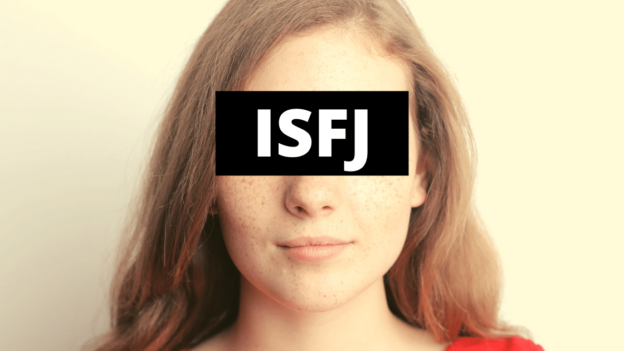Loyal, caring, orderly and dependable, the ISFJ personality is a modest introvert with a nurturing spirit. Comprising roughly 8% of the general population, this is one of the more common MBTI types. Despite their introverted nature, ISFJs possess social intelligence that allows them to get along well with others.
They have a desire to play a helpful part in the service of their community, family, profession and general place in society. Many ISFJs are drawn to careers in nursing and medicine as well as psychiatry and the culinary arts. With their gentle and comforting disposition, they have a special ability for putting others at ease and making them feel cared for.
The ISFJ type has been nicknamed “logistical protector” and “defender”. This speaks to the way these helpful souls look after other’s well-being, ministering to them and seeing to their safety and security. These individuals derive gratification from tending to the welfare of others and being the steward of their wellness. ISFJs concern themselves with the more practical side of life and have little interest in the theories and hypotheticals that intuitive types like to entertain. Furthermore, they rely greatly on their experience and memory of past events to inform their decisions.
People of this type are creatures of habit and the more often they repeat a routine or behavior, the harder it becomes for them to break away from it. They find comfort in what is familiar and can be highly suspicious of anything that deviates from what they consider to be normal. Moreover, they tend to look back on the past in more positive terms, especially when comparing it with the present.
Because of their lean towards caution and pragmatism, this type feels little urge to take creative risks or seek after novelty for its own sake. They prefer to stick to what they know best but on some level they would like to work on being more open-minded. Related to this is their ideological leanings. ISFJs have conservative sensibilities and tend to adhere to the beliefs and traditions they were brought up with. They take seriously their financial and material security and take interest in matters of morality and social policies.
ISFJs display a calm, almost stoic demeanor and a quiet dignity. Under stress however, they can be fussy and significantly more emotional. As a type who values order and respect for authority, these persons are not inclined to be rebellious or defiant. They are not attention-seekers either and often work diligently behind the scenes without calling attention to themselves.
Compared to their extroverted counterpart, ESFJ, the ISFJ is much less open and talkative. Around strangers, their shyness and reserve can be mistaken as being cold and insipid. Among close friends and relatives, they can be very chatty discussing all sorts of details. At heart, they are easy going and sincere.
Their sense of reserve is more often a reflection of their seriousness of purpose. They have good motivation and follow-through that allows them to persevere as students and trainees. In school, ISFJs prefer following clear outlines and enjoy completing homework assignments that are well defined.
Although they prefer normalcy and regularity in their everyday lives, these types have a latent curiosity for things that are unusual and bizarre. They indulge in these guilty pleasures only in moderation and often vicariously through movies, gossip or tales that others recount to them. It is likely that many take a special interest in True Crime shows and books.
Along with ISTJs, ISFJs have inferior extraverted intuition. Because of this, they tend to have a negative attitude about trying new things. Having to adapt to new situations or improvise and go off script can give them a lot of anxiety.
They are among the least debaucherous of all personality types. The ISFJ man or woman is someone noted for their thoroughness and attention to detail. They are often willing to work long hours and sacrifice a lot of their time for the sake of duty and responsibility. They can be counted on to complete their tasks if at all humanly possible.
They prefer to work alone and even in positions of authority may attempt to do a lot of the work themselves rather than delegate others. Because of this, this type can easily become doormats and get taken advantage of by selfish people who take them for granted. If they fail to set boundaries for themselves, they can, over time, grow resentful and harbor negative emotions due to feeling underappreciated.
Paradoxically, ISFJs are more likely than other types to complain about all the work and responsibility they have to bear while at the same time wouldn’t have it any other way. Ultimately, this type wants to feel needed and so they would be dismayed if someone were to try to actually replace them or reduce their responsibilities significantly.
Especially when it comes to family occasions, ISFJs find meaningfulness that is directly related to their contribution, be it cooking, cleaning or entertainment. For them, this is a direct expression of love that is gratifying and rewarding.
ISFJ Strengths:
- Reliable and Responsible: ISFJs are known for their dependability and commitment to fulfilling their duties.
- Supportive: They are attentive and supportive, often putting the needs of others before their own.
- Empathetic: ISFJs are highly attuned to the feelings of others, making them compassionate and caring individuals.
- Detail-Oriented: They excel at paying attention to details, ensuring accuracy and thoroughness in their work.
- Loyal: ISFJs are loyal and dedicated to their relationships, valuing long-term connections.
- Patient: They have the patience to work through challenges and are understanding of others’ perspectives.
- Practical Thinkers: ISFJs approach problems with a practical and realistic mindset.
- Excellent Organizers: They are skilled at organizing tasks, schedules, and environments for efficiency.
- Good Team Players: ISFJs work well in team settings, contributing positively to group dynamics.
- Conflict-Averse: They prefer harmony and may avoid conflicts to maintain a peaceful environment.
ISFJ Weaknesses:
- Reluctance to Change: ISFJs may resist change, preferring familiar routines and traditions.
- Difficulty Saying No: They may struggle to assert themselves and say no, even when overwhelmed.
- Overemphasis on Others: ISFJs may prioritize the needs of others over their own, neglecting self-care.
- Difficulty with Criticism: They can be sensitive to criticism and may take it personally, affecting their self-esteem.
- Tendency to Worry: ISFJs may worry excessively about potential problems or future uncertainties.
- Difficulty Dealing with Conflict: They may avoid confrontations and conflicts, sometimes at the expense of addressing important issues.
- Overcommitment: Their desire to help others may lead to overcommitting and spreading themselves too thin.
- Difficulty Expressing Disagreement: ISFJs may find it challenging to express disagreement or assert their own opinions.
- Resistance to Change: They may struggle with adapting to new situations or technologies.
- Perfectionistic Tendencies: ISFJs may set high standards for themselves, leading to frustration when expectations aren’t met.
Famous ISFJ People:
- Selena Gomez – Actress
- Mother Teresa – Catholic Missionary and Nobel Peace Prize Winner
- King Charles – Monarch of the British Throne
- Kate Middleton – Duchess of Cambridge
- Halle Berry – Actress
- Rosa Parks – Civil Rights Activist
- Denzel Washington – Actor
- Selena Gomez – Singer and Actress
- Jimmy Carter – 39th President of the United States
- Nancy Reagan – Former First Lady of the United States
Other MBTI Types:
- INTP Personality Type
- INTJ Personality Type
- ENTP Personality Type
- ENTJ Personality Type
- INFP Personality Type
- INFJ Personality Type
- ENFP Personality Type
- ENFJ Personality Type
- ISTJ Personality Type
- ISFJ Personality Type
- ESTJ Personality Type
- ESFJ Personality Type
- ISFP Personality Type
- ISTP Personality Type
- ESTP Personality Type
- ESFP Personality Type
related posts:
- ISFJ Weaknesses; 7 Struggles of Being ISFJ
- 12 Shades of ISFJ: MBTI & the Zodiac
- 6 Best Paying Jobs For ISFJs
- The ISFJ Aries | MBTI & the Zodiac
- ISFJ Shadow: The Dark Side of ISFJ
- ISFJ and ISTJ in love: 5 Essential Dynamics of their Relationship - February 24, 2024
- ENTP and ENTJ in love: 6 Critical Dynamics of Their Relationship. - February 18, 2024
- ESTJ and ESFJ in love: 4 Key Aspects of their Relationship. - February 12, 2024





